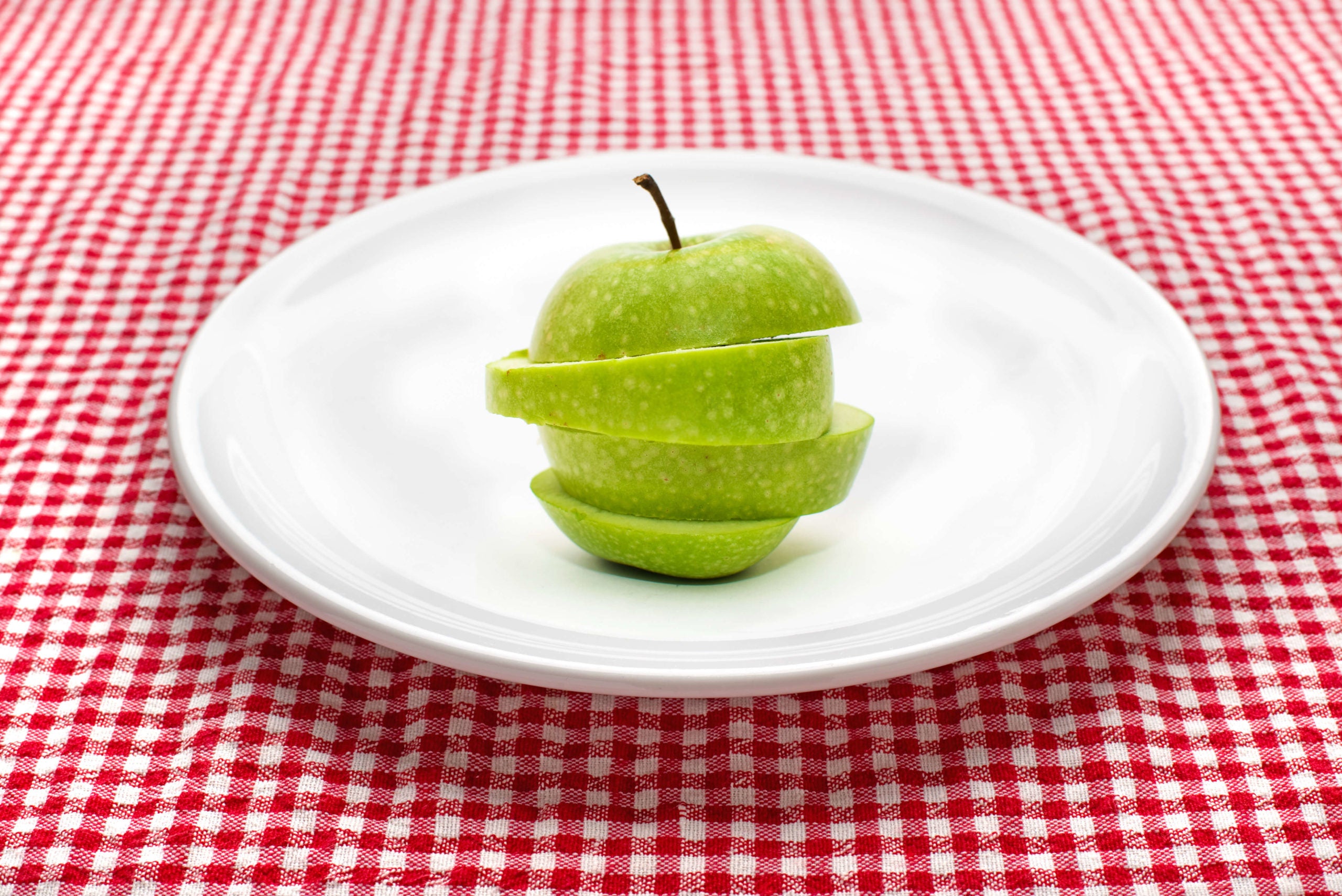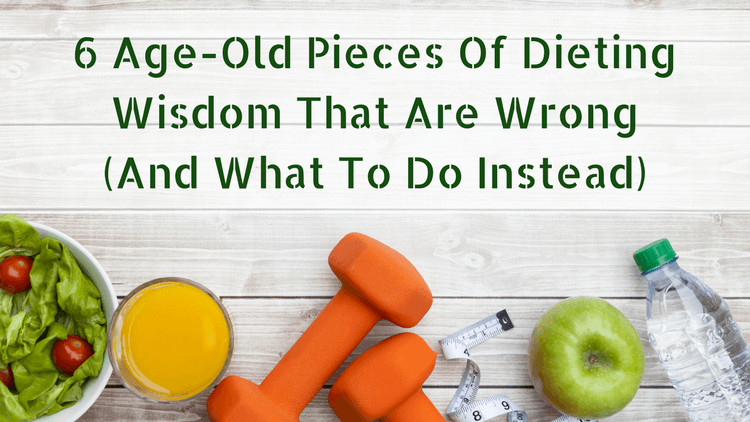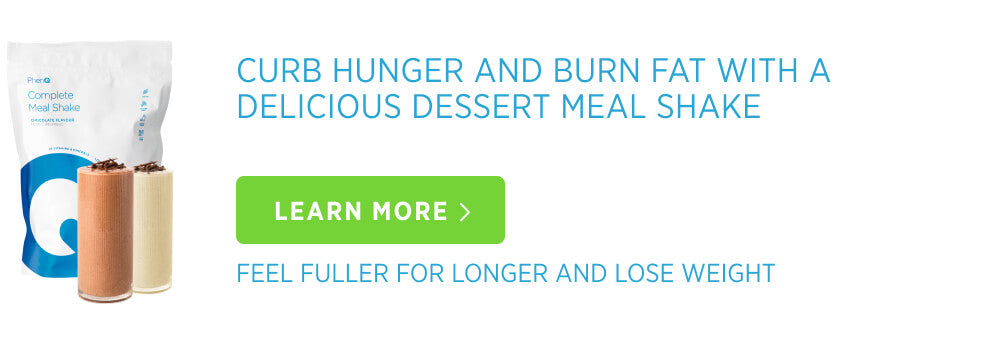Dieting has been transformed over the last few decades. Thankfully, this means that much of the diet “wisdom” that’s accumulated from long ago has fallen by the wayside. Well, at least it has for some.
The issue with dieting wisdom is that it’s ingrained in popular culture and in our minds. Therefore, it’s difficult to do away with the myths that have captivated dieters, even smart dieters, for a long time.
In this article, we address the six most prevalent pieces of dieting wisdom that have been proven wrong, and tell you what you should be doing instead.
1. You can’t eat carbohydrates if you want to lose weight
In a theory popularized by the Atkins Diet, carbohydrates have long been the enemy of dieters everywhere. However, they shouldn’t be.
A healthy, balanced diet includes foods from all macronutrient groups: protein, fat, and carbohydrates included. Today, people are aware of the important distinction between natural carbohydrates and refined carbohydrates. Natural carbohydrates occur in whole grains, vegetables, fruits, and beans. These are all sources that are high in fiber, which slows down the absorption of carbohydrates and allows your body to better digest the nutrients.
Refined carbohydrates come from sources like white bread, sugars, and “added” sugars. These are processed and do little more than spike your blood sugar when you consume them.
Lesson: You can eat carbohydrates, just keep them natural.
Read: How to lose weight without dieting
2. Restrict your calories to no more than 1,200 per day if you want to lose weight
At some point in history, 1,200 calories per day became the baseline for weight loss. To this day, many dieters, especially women, believe they can’t exceed 1,200 calories per day if they want to lose weight.
The issue is that 1,200 calories is not enough for most people and, more importantly, the same caloric guidelines won’t work for everyone. In fact, there is no “magic number” if you’re trying to lose weight because everyone is different and so is the number of calories their bodies need to lose weight. This means that instead of obsessing over calories, you should focus on eating a wide variety of nutrient-dense, natural foods that are filling and delicious!
Lesson: Focus on the healthy foods you eat, not on how little you eat.

3. Eat smaller meals and eat more often
This is one piece of dieting wisdom that you still hear today. And, while this piece of wisdom is not necessarily incorrect, the logic behind why you may consider doing so is!
Traditionally, dietitians recommended eating six to eight meals per day because eating more frequently keeps your metabolism working, which helps burn more fat. However, your metabolism isn’t simple to alter, especially its speed.
Today, dietitians recommend eating every three to five hours, whenever works best for your body. Doing so will stabilize blood sugar, fend off cravings, and keep you feeling satisfied.
Lesson: Eat every three to five hours to stay satisfied.
4. Don’t eat after 8 p.m.
Have you ever heard that late-night snacking is ruining your diet? In all likelihood you have.
Some studies show that eating later in the day makes you more likely to gain weight when compared to those who consume the same number of calories earlier in the day. However, these studies are not conclusive and, if anything, emphasize the truth, which is that it’s how much you eat, and of what, throughout the day, along with your physical activity levels, that dictate your weight loss or gain.
Lesson: You can eat after 8 p.m., just don’t over-indulge or binge on foods that you wouldn’t have chosen earlier in the day.
5. The best kind of diet is “XYZ”
Do you find yourself falling victim to fad diet after fad diet because you’ve heard that it’s the latest trend or the easiest/fastest/best way to lose weight? Many dieters, even smart dieters, do.
Research suggests that any diet will work, at least in the short term. This means that you could go paleo, cut out carbs, try being a vegetarian, or follow virtually any other diet and be successful. The reason? Almost all require you to consume fewer calories, which is almost guaranteed to lead to weight loss.
The problem is that this piece of age-old wisdom comes with an expiration date. If you’re unhappy with or unable to follow a particular diet for more than a couple of weeks, it’s just a temporary fix. By focusing on making lifestyle changes you can maintain for years to come, you’ll be in a much better position for long-term success.
Lesson: There’s no “right way” to lose weight. Instead, find the method that works best for you!
6. Exercise is the most important factor when you want to lose weight and keep it off.
Do you work out to eat? Can you eat whatever you want and still lose weight because you’re working out? If so, it’s time to stop.
While exercise is important to weight loss, and will play a part in how much weight you lose, what you eat is far more important. The issue is that you don’t burn as many calories as you might expect in the gym. This means that when you leave and “treat yourself,” you’re doing more harm than good and may even eat more because you feel as if you’ve earned it.
Lesson: Focus on your diet, not primarily on exercise, when you’re trying to lose weight.
Which pieces of dieting wisdom have you fallen victim to?
It’s all too easy to get wrapped up in old dieting myths when you’re trying to lose weight. However, learning the truth behind each myth is vital if you want to lose weight and keep it off.




